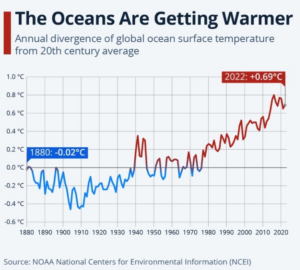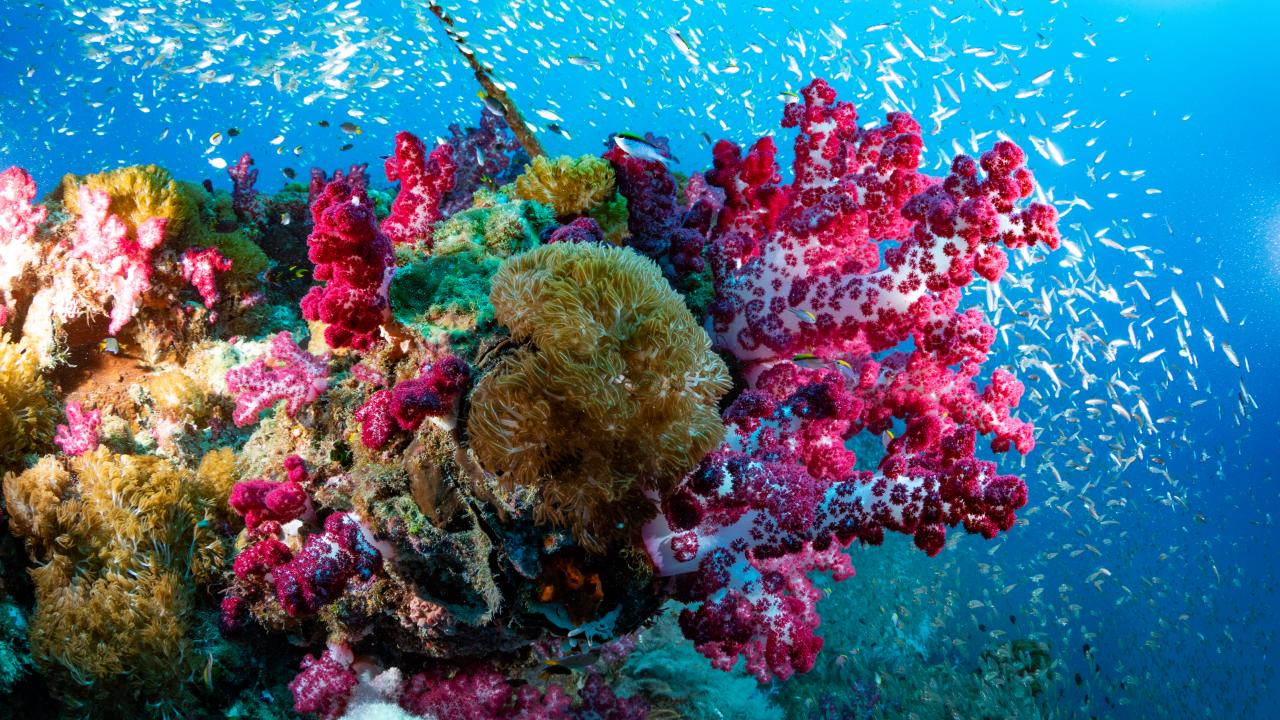With the rise in temperatures all across the globe and the increasing imbalance in climate, we are faced with yet another predicament of losing one of nature’s biggest resources in the ocean, the Coral Reefs.
Global coral reefs are undergoing a widespread bleaching phenomenon due to unprecedented ocean warming caused by the climate emergency, declared two scientific organizations on Monday. Certain experts caution that this event might escalate into the most severe bleaching episode ever documented.
A joint statement from the National Oceanic and Atmospheric Administration (NOAA) and The International Coral Reef Initiative (ICRI) revealed that over 54% of coral reef regions worldwide underwent bleaching in the last year. This affected at least 53 countries and territories, encompassing extensive areas of the Atlantic, Pacific, and Indian Oceans.
What are coral reefs?
While the common conception of coral reef a person develops from its visual appeal is that of a plant that resides in the Ocean but it is far more than just that. In reality, Coral reef ecosystems are complex and diverse communities of species that interact with one another and their surrounding physical environment. Corals belong to a class of colonial animals that are related to hydroids, jellyfish, and sea anemones.
Stony corals, known for their tough skeletons, form the foundation of coral reefs. Each colony comprises countless individual polyps, capable of extracting dissolved calcium from seawater and transforming it into a sturdy mineral structure known as calcium carbonate. While the surface of a coral colony hosts live coral, the bulk underneath consists of a calcium carbonate skeleton, which could be several decades old.
Coral polyps, acting as hosts, offer a dwelling for algae, while the algae (zooxanthellae), through photosynthesis, produces food for the polyps in return.

Unraveling the Importance of Coral Reefs
Coral reefs are an indispensable treasures, holding immense ecological, economic, and cultural significance for countless individuals globally. They offer invaluable ecosystem services, such as sustenance, economic stability, and shielding against natural calamities. Renowned as one of Earth’s most biodiverse and precious ecosystems, coral reefs support approximately a quarter of all marine life, including over 4,000 fish species, throughout various stages of their existence.
According to the U.S. Geological Survey, coral reefs in the Atlantic, Caribbean, and Pacific Islands regions contribute significantly to the economy of the United States. They are estimated to generate billions of dollars annually in tourism revenue, while also supporting approximately $100 million in commercial fisheries each year. Moreover, these coral reefs serve as crucial natural barriers, safeguarding tens of thousands of lives and billions of dollars in property and economic activity from the impacts of flooding and erosion.
What’s happening to them?
When corals face stress from marine heatwaves, they expel the algae residing in their tissue, which not only gives them their color but also supplies most of their energy. If ocean temperatures fail to normalize, bleaching can result in widespread coral mortality, posing a significant threat to the species and the food chains that depend on them, potentially leading to collapse.
This signifies the fourth global bleaching event, and the second occurring within the last decade, following previous occurrences in 1998, 2010, and between 2014 and 2017. Over the past year, widespread bleaching has been observed in various regions, including Florida and the broader Caribbean, Mexico, Brazil, Australia, the South Pacific, the Red Sea, the Persian Gulf, Indonesia, and the Indian Ocean, encompassing the east coast of Africa and the Seychelles.
“The increasing frequency and extremity of marine heatwaves driven by climate change, is testing the tolerance levels of coral reefs,” said Selina Stead, the CEO of AIMS( Australian Institute of Marine Science). “Climate change is the biggest threat to coral reefs worldwide and this global confirmation illustrates just how extensive its impact has been across the last 12 months.”

The Fate of Coral Reefs in a Warming World
UN Environment Programme’s stark warning highlights the perilous path ahead if global emissions aren’t swiftly curbed: a looming rise of nearly 3 degrees Celsius above pre-industrial levels by the century’s end. Scientists paint a grim picture, suggesting that even a 2-degree increase, anticipated by around 2050, could spell doom for approximately 99% of the world’s coral reefs.
Beyond their role as essential marine habitats, coral reefs stand as linchpins for coastal communities worldwide, serving as crucial bulwarks against storm surges and rising sea levels. Moreover, they underpin livelihoods and nourishment for an estimated billion people globally.
David Ritter, CEO of Greenpeace Australia, said reefs were facing “existential danger” and that blame lies “squarely with the main culprits fueling global warming: fossil fuel companies, and the governments who prop up this industry.”
“We are running out of runway to avoid irreversible climate disaster,” he added, “and must act quickly to ensure an immediate end to new fossil fuels.”
ALSO READ





















